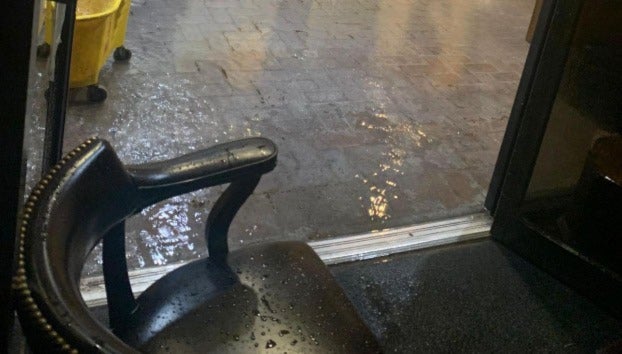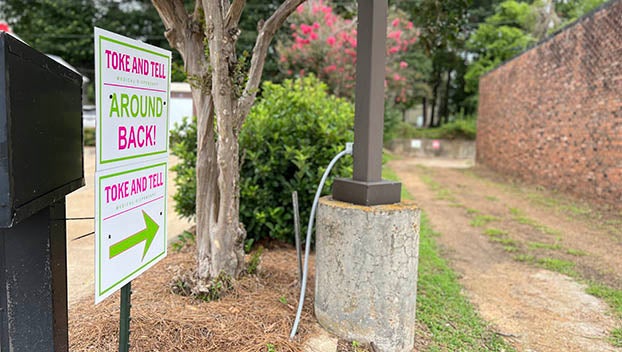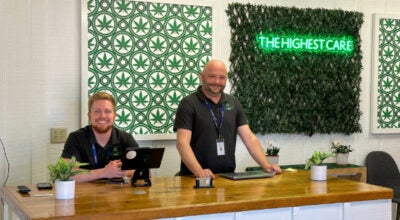Defining service: Students receive dictionaries from Rotary
Published 12:01 am Thursday, October 23, 2014

Trinity Episcopal School third-grade student Katie Grey writes her name in a new dictionary she received from the Natchez Rotary Club Wednesday. At top, Trinity third-grade student Sam Bandy writes his name in his new dictionary. (Sam Gause / The Natchez Democrat)
NATCHEZ — Trinity third-grade students learned the definition of service Wednesday, enhancing their vocabulary one word at a time.
Jim Waddill and Will Devening, members of Rotary Club of Natchez, visited with Aubree Bunyard’s third-grade class at Trinity, where each student received their own dictionary.
Third-grade student Grace Dykes, 8, said she loved learning about the word, “service.”

Trinity third-grade student Sam Bandy writes his name in his new dictionary. (Sam Gause / The Natchez Democrat)
“I learned that it’s good to put others before yourself,” Dykes said.
Every year, Rotarians participate in the dictionary project, where private and public elementary school students learn what it means to be a Rotarian, while receiving their own dictionary.
“We teach them what Rotary is all about,” Devening said.
Devening said Rotary is a service organization, which abides by the motto “service above self.”
“We had them look up a word and go through the dictionary so they can know it’s their dictionary,” Devening said.
Not only did students learn new words, but also new ways to get through life.
The four-way test, which are four things Rotarians think, say or do, was taught to the class in order to mold them into better individuals.
The four questions include: Is it the truth? Is it fair to all concerned? Will it build good will and better friendships? Will it be beneficial to all concerned?
“They get dictionaries every year, and we love them,” Bunyard said. “I still have some from last year.”
Bunyard said it’s huge for students to have access to their own dictionaries.
“I like that they have it at their finger tips, especially for writing,” Bunyard said.
Bunyard’s students are currently working on writing a five-paragraph story about their love for Trinity.
“If they don’t know how to spell a word, their dictionaries will be right there for them,” Bunyard said. “Knowing how to look up words for life is a huge skill.”
Third-grade student Stephen McDonald, 8, was glad to get his own dictionary, but said he’s not ready to look up words just yet.
“I’m going to use it mostly for school,” McDonald said.
McDonald said he learned about helping others through Trinity’s World Hunger Project, which took place last week.
Waddill thinks giving students dictionaries can give them a feeling of ownership.
“We like to do it because it’s their own dictionary,” Waddill said. “It doesn’t belong to the school, and it doesn’t belong to Rotary Club — it’s their own dictionary to take home and use.”





